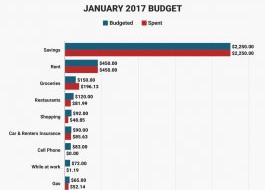 Samantha Lee / Business Insider
Samantha Lee / Business Insider
Certified financial planner Sophia Bera answers:
I'm hoping you can provide me with some advice. I'm a pediatric neuropsychologist who has been licensed for two years. I'm essentially fresh out of graduate school, and I am one of the unfortunate graduates who has amassed an exorbitant amount of student loan debt by attending a for-profit university.
When I applied for graduate school at 21, I had no idea that there was a difference between for-profit and nonprofit schools, or that attending a for-profit school would financially affect the rest of my life. The full amount that I would end up owing was not accurately described by my graduate university's financial department when I interviewed, and I feel I was misled into believing that paying off my graduate student debt would be much easier than it in fact is. However, I also recognize that it is now my responsibility — but I'm stuck.
I have $262,000 in graduate loans and my husband has $40,000. Luckily, we've paid off undergrad. My interest rate is 6.75%. I'm not sure what my husband's is, but I believe it is similar. Our combined annual income after taxes last year was about $105,000.
What steps should we take to pay down this debt?
Student loan debt has crossed over $1.3 trillion in the United States, and that number is growing every day. According to the Institute for College Access & Success, “7 in 10 students in the class of 2014 graduated with student loans.” You are not alone. But you are in a tough spot. One of the reasons I’m so passionate about financial education is because of situations like yours. Often times, students don’t know the gravity of their situation until they graduate and see their student loan payments for the first time.
Assess your situation
The first thing to do is to assess your current student loan situation. Write down all your student loan balances, monthly payments, and interest rates for you and your husband’s loans. If you have public student loans, then you may qualify for one of the income-driven repayment options, which could be a good option especially if your student loan balances are more than your annual income. Then use the repayment estimator to see how much you’d pay under the different repayment programs. These programs involve loan forgiveness after 20 or 25 years on public student loan debt. Remember, these repayment options do not apply to private loans.
However, there’s one way to get your public student loans forgiven after 10 years (120 on time payments), and that’s through Public Service Loan Forgiveness (PSLF) . If you work in the public sector or for a nonprofit, you should use an income-driven plan in conjunction with PSLF. (Quick note: You cannot use this program in combination with the extended repayment plan, so make sure that you’re not on that payment plan if you’re trying to use PSLF).
Attack your debts separately
I would analyze you and your husband’s student loan situation separately. Since you have significantly more student loans than your husband, I think you’d really benefit from one of the income-driven plans. Lowering your monthly debt obligation on your loans would free up cash flow to aggressively pay off your husband’s student loans. Seeing progress in one area of your finances can often help motivate you to work on other areas as well.
People who are married with significant student loan debt should work with a CPA to determine whether they should file jointly or separately for their taxes. There are many tax benefits that you’ll qualify for when you file jointly but your student loan payments are based on your income for income-driven plans, so you could save a significant amount on your monthly student loan payments by filing your taxes separately .
Another thing to consider is how long do you want these student loan payments hanging around? Being in debt makes a lot of people sick to their stomach, and the idea of waiting two decades for their student loans to be forgiven sounds exhausting. If you have the means and motivation to pay off your student loans quickly, do it! Start by attacking the loans with the highest interest rates first and you’ll save the most in interest.
Consider refinancing
A final option to consider is refinancing your student loan debt. If you have any private student loans at undesirable interest rates (I use 5% or higher as a rule of thumb), I would look into refinancing them to a lower interest rate and preferably a shorter time horizon. With public (federal) student loans you need to be more cautious about refinancing because you lose the federal loan benefits, such as the deferment, forbearance, and using an income-driven repayment option.
One thing I like to point out is you don’t have to refinance all of your student loans together, I usually recommend that you only refinance the student loans with the highest interest rates. There are many loan refinance options out there so do your research, but I think that SoFi is a good place to start. I’ve found them to be particularly helpful at working with my clients to refinance six figures in student loan debt from grad school, law school, or med school.
You have a complicated situation, and I really think you could benefit from working with a financial planner to sort out the details of your situation. You’re likely going to want to utilize a variety of these tactics mentioned above. Addressing your student loan situation might involve the following:
Switching to an income-driven repayment plan for yourstudent loans
Refinancing any private student loans for you or your husband
Working with a CPA to analyze your tax situation andpossibly start filing your taxes separately
When we are addressing six figures in student loan debt, this could impact your financial situation by tens of thousands of dollars. Hopefully, these resources will help you get started addressing your student loan situation. Good luck at taking the next step on your student loan journey!
This post is part of a continuing series that answers all of your questions related to personal finance. Have your own question?Email yourmoney[at]businessinsider[dot]com.
Sophia Bera, CFP® is the Founder of Gen Y Planning and has been quoted in The New York Times, Forbes, Business Insider, AOL, The Wall Street Journal, and Money Magazine. She tweets, travels, and loves helping millennials manage their money more effectively. Curious? Sign up for the free Gen Y Planning Newsletter.




